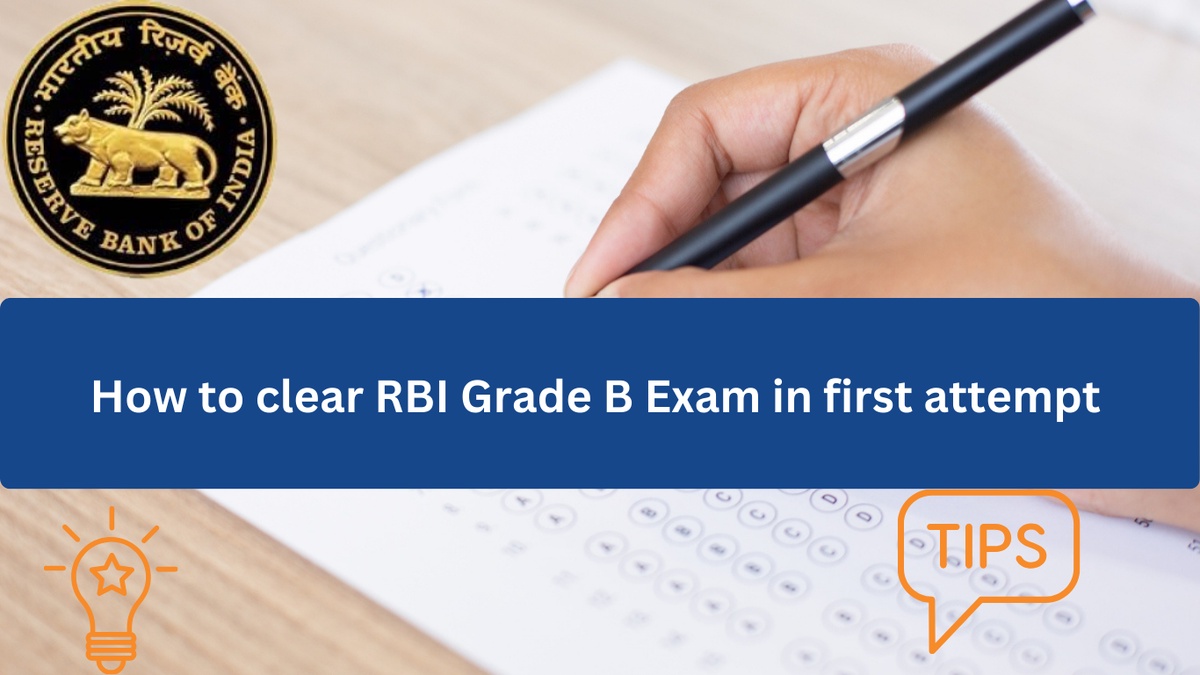The Reserve Bank of India (RBI) Grade B examination is one of the most prestigious and competitive exams in the country. Aspiring candidates often face immense pressure and challenges while preparing for this examination. However, with the right approach and strategies, cracking the RBI Grade B examination in the first attempt is not just a dream but an achievable goal.
In this article, we will discuss comprehensive tips and strategies to help you prepare effectively and crack the RBI Grade B examination in your first attempt.
Understanding the RBI Grade B Examination
Before delving into the preparation strategies, it is crucial to understand the pattern and syllabus of the RBI Grade B examination. The RBI Grade B examination consists of three phases:
Phase 1: Preliminary Examination
Phase 2: Main Examination
Interview
Each phase assesses different aspects of a candidate's knowledge, skills, and aptitude. The preliminary examination primarily tests the candidate's proficiency in subjects like Quantitative Aptitude, Reasoning Ability, English Language, and General Awareness. On the other hand, the main examination evaluates in-depth knowledge in Economic and Social Issues, Finance and Management, and English Writing Skills.
Now, let's delve into the tips and strategies to crack RBI Grade B examination in the first attempt:
Phase 1: Preliminary Examination
Understand the Exam Pattern: Familiarize yourself with the exam pattern, marking scheme, and time allocation for each section. Develop a strategic approach to attempt maximum questions accurately within the allotted time.
Strengthen the Basics: Focus on building a strong foundation in subjects like Quantitative Aptitude, Reasoning Ability, English Language, and General Awareness. Clear your concepts and practice regularly to enhance your speed and accuracy.
Practice Mock Tests: Regular practice through mock tests and previous years' question papers is indispensable for success in the preliminary examination. Analyze your performance, identify strengths and weaknesses, and work on improving them.
Time Management: Time management is key to excelling in the preliminary examination. Allocate specific time slots for each section and practice solving questions within the stipulated time frame.
Stay Updated with Current Affairs: General Awareness plays a significant role in the preliminary examination. Stay updated with current affairs, economic developments, and banking awareness to ace this section.
Phase 2: Main Examination
Comprehensive Preparation: The main examination demands a deeper understanding of Economic and Social Issues, Finance and Management, and English Writing Skills. Invest ample time in studying each subject comprehensively and develop conceptual clarity.
Refer to Standard Study Material: Utilize standard study material and reference books recommended by experts to cover the syllabus effectively. Make concise notes and revise them regularly to retain important concepts.
Practice Descriptive Writing: English Writing Skills is a crucial component of the main examination. Practice descriptive writing on various topics, enhance your vocabulary, and work on grammar and sentence structure to articulate your thoughts effectively.
Time-bound Practice: Practice time-bound mock tests for the main examination to simulate exam-like conditions and improve your speed and accuracy. Focus on time management and prioritize sections based on your strengths and weaknesses.
Seek Guidance and Feedback: Seek guidance from experienced mentors, join coaching classes, or participate in online forums to clarify doubts and receive valuable feedback on your preparation strategy.
Interview
Personality Development: The interview round evaluates not only your knowledge but also your personality traits, communication skills, and confidence. Work on your overall personality development, body language, and communication skills to leave a lasting impression on the interview panel.
Stay Updated with Current Affairs: Stay abreast of current affairs, economic trends, and banking developments to effectively articulate your views during the interview.
Mock Interviews: Participate in mock interview sessions conducted by experienced professionals or mentors to simulate real interview scenarios. Receive constructive feedback and work on areas that need improvement.
Be Confident and Authentic: Be confident, composed, and authentic during the interview. Express your thoughts clearly, maintain eye contact, and demonstrate your passion for the banking sector.
Conclusion
Cracking the RBI Grade B examination in the first attempt requires diligent preparation, strategic planning, and unwavering determination. By following the tips and strategies outlined in this article, you can enhance your preparation and maximize your chances of success. Remember, consistency, perseverance, and self-belief are the keys to achieving your goal of becoming an RBI Grade B officer. So, stay focused, stay motivated, and embark on your journey towards a rewarding career in banking.


No comments yet